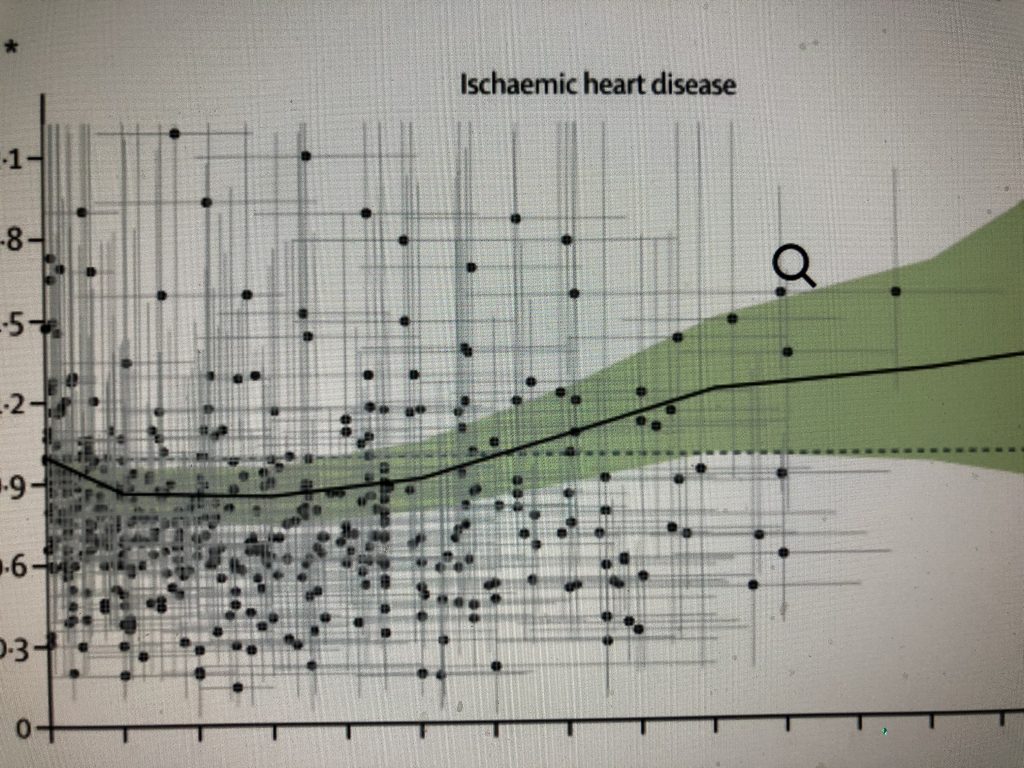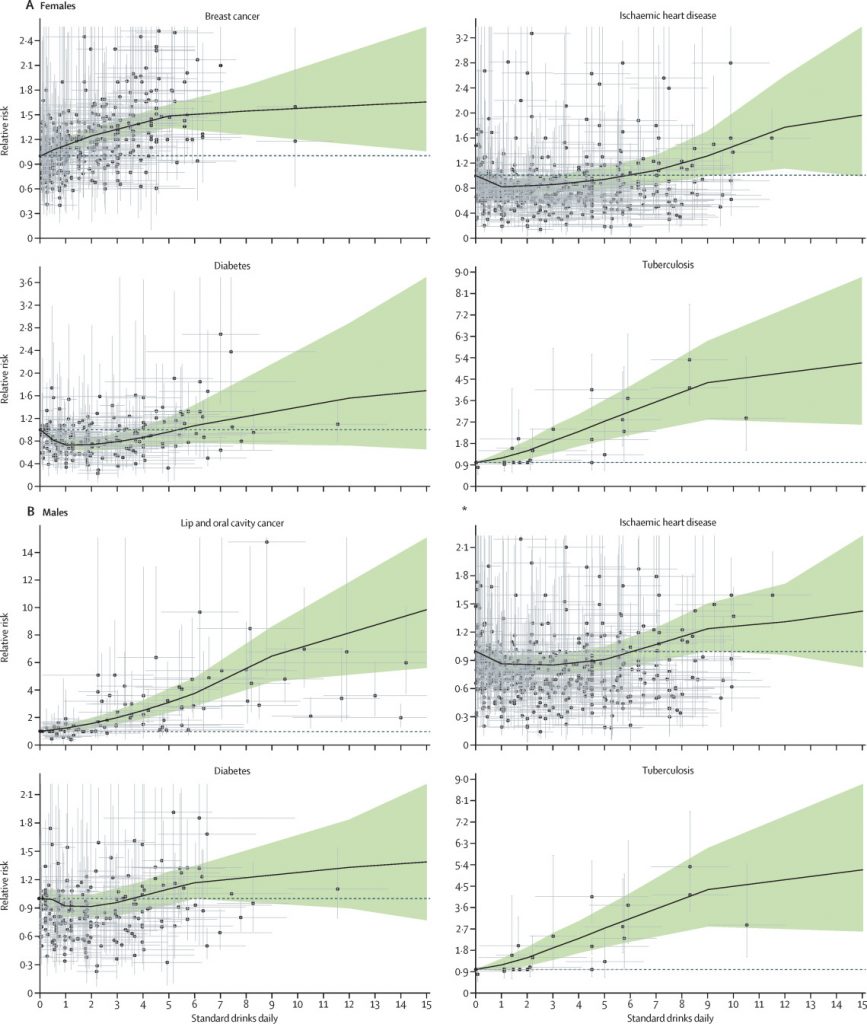When you hear that there is “no safe level of alcohol,” found in a recent study published, what are your thoughts? That article was published in The Lancet, a prestigious medical journal. GBD 2016 Alcohol Collaborators. Alcohol use and burden for 195 countries and territories, 1990–2016: a systematic analysis for the Global Burden of Disease Study 2016. The Lancet, 2018; DOI: 10.1016/S0140-6736(18)31310-2
If you are like my good friend, Simon Majumdar, you see yet another study, grabbing yet another headline, and simply ignoring the reality that people will do what they want, and cherry pick the studies they want to justify their behavior. Now,

Simon Majumdar and I seriously contemplating alcohol. He does drive me to drink
Looking at the effects of alcohol world wide there are some startling figures:
In 2016 there were about 3 million deaths, worldwide, directly related to alcohol. Young men, between 15 and 49, were especially at risk, as alcohol accounted for 12 per cent of their deaths.
Eastern Europe and Asia have particularly high death rates from alcohol, especially Russia, Lithuania, Belarus, Mongolia, Latvia, and Kazakhstan.
While Dr. Gakidou said, “The myth that one or two drinks a day are good for you is just that — a myth. This study shatters that myth.”
But wait just a second- let us look at the data from the paper.

From the graph you can see the Relative Risk which drops until you get to 50 gms of alcohol per day. This was the graph for ischemic heart disease. The most points are showing an inverse risk with alcohol and heart disease, and yet there are some points clearly above the lines. Again, diversity in some people– what is a normal dose for one is a toxic dose for another. Alcohol, like any drug, has a level of toxicity for all, but it is dose dependent. In this case, you can see that – for the majority of those who might have a predisposition to heart disease, alcohol is beneficial. 
![]()
These are the other graphs from the paper – which show there is a clear upswing of the relative risk when you exceed 4 standard drinks (40 gms). But this can be correlation instead of causation. Remember, alcohol is a promoter of cancer, it does not cause cancer. That means, if you don’t have the genetic or environmental factors to have a form of cancer, alcohol won’t make a difference.
It appears, by the paper that there are increases in all problems from alcohol at around 40 gm of alcohol. Which is the equivalent of about 4 oz of gin, rum, whiskey, etc) or a half bottle of wine. Under that curve- some conditions appear to improve. In their article they state that some of those “improvements” are not statistically significant, but when I ask the lead author of the paper what he says, “If you’re dying from a lot of ischemic heart disease in your population and a lot of diabetes, then that two-drink level is going to be probably, maybe at a right point for you. but that’s a pretty uncommon fact when causes of death are predominately ischemic heart disease and diabetes.”
![]()
![]()
So lets drill down to what this means for the 23 alcohol-related problems per year. Four people in 100,000 who consume one drink a day will have a problem caused by drinking, or at least that is what this statistic says. Remember, alcohol, like any drug, has a range of toxicity and for some people that could be one drink a day. If you have two drinks a day then you we increase that to about six people out of 100,000.
So, alcohol has issues – and for some it is at the lower level. What is clear by this study is when you get to higher levels – DAILY – you have an increase in those issues. It is like cigarette smoking. If you have one cigarette a day it is bad, but if you have a pack a day (20 cigarettes per day) for 20 years, yes, you will likely have some issues. It is always a matter of dose over time and not just one drink will have a problem.
While we, in culinary medicine, stay away from “Food is medicine,” because such ideas invite a lot of quacks – that is those who don’t have a medical degree saying they can fix you with some food. Food is the one thing that you can do for your health. I don’t advocate drinking, but if you drink, I am not going to stop you – and I say – moderate.
This study was for policy experts it did not disprove that two drinks a day is good for you – then again, many of us say it can be good, or it cannot.
Be responsible with your alcohol. If you want to find out about social tragedies in life go to any bar and talk to a bartender. People’s families, marriages, and relationships ripped apart because of inebriated people saying dumb things they ought not to say. If you want to see physical tragedies go to a trauma room and you will be hard pressed to find an automobile accident that doesn’t involve alcohol, or a gun accident that doesn’t involve alcohol.
Prohibition didn’t work, nor did the lack of prohibition. And as my buddy, Simon Majumdar points out, more people died of alcohol poisoning during prohibition than died any year when it was not in place.
